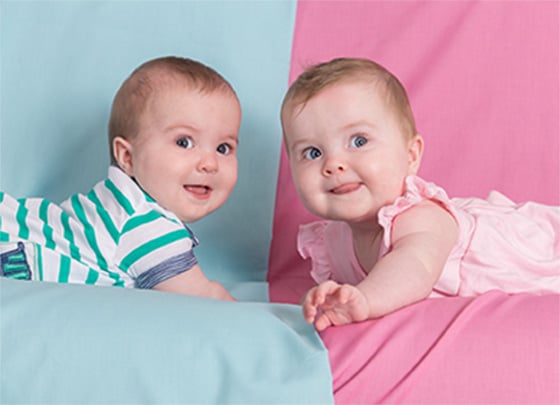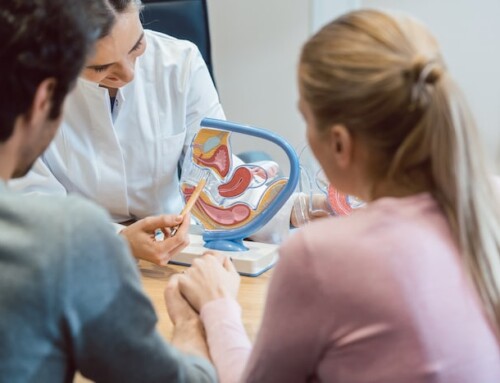Pregnant….but not just to have a baby.
IVF and the ‘Saviour Siblings’.
The concept of these so-called ‘saviour siblings’ is among the most pressing of moral and ethical dilemmas that IVF has faced in recent times. It’s been decades since IVF treatment was initially pioneered and over time this treatment has been modified to culminate in the very high, exacting standards of the Cyprus IVF Centre. Our procedures have always been at the cutting edge of reproductive medicine and we are proud to say that pre-implantation genetic diagnosis is among our most successful treatments.
However, IVF has certainly caused some controversy in its time. Historically, the Human Fertilisation and Embryology Authority (HFEA) has been slow to accept the dramatic changes that in-vitro fertilisation has brought to the face of the fertility world, fearing that to offer each new technique would be opening the flood gates for ‘designer babies’. At the Cyprus IVF Centre, Team Miracle have a far simpler remit; to do everything they can in the best interests of their patients. To this end, the very newest, medically proven, advances are always welcomed as a concept.
The idea that you could decide the gender and tissue type of your child is a world away from the original IVF idea, which was simply to treat infertile couples. However, over the last three decades, as medical science has advanced, it’s been discovered that more and more procedures have become possible. There are now a number of ways in which you can manipulate your growing embryo – but what if having a baby wasn’t the only reason you were trying to fall pregnant?
There is a rapidly rising trend of ‘saviour siblings’. These are babies created through IVF; not because their parents are infertile, but because they want to create embryos which can then be assessed in a laboratory to see whether they are a tissue match for a sibling. This process, known as pre-implantation genetic diagnosis (PGD) is used to create siblings for an existing child who suffers from a genetic abnormality. In PGD, embryologists use a screening technique for inherited abnormalities and they test to see whether the embryo is an exact match for its sibling. The chosen embryos are then implanted into the mother’s womb and blood is taken from the umbilical cord which is then harvested for the stem cells necessary to treat the affected sibling.
Case study.
By August 2009, there had been only 12 licences for this procedure granted by the HFEA. In fact, Britain’s first ‘saviour sibling’, Jamie Whitaker, was created in the USA because it wasn’t possible to have PGD in the UK at that time. Undeterred, his parents flew out to the States to have the treatment carried out over there. Jamie’s brother Charlie suffered from Diamond Blackfan Anaemia, an inherited disorder where the body cannot produce red blood cells. Sufferers have to undergo regular, painful injections and Charlie’s parents knew that they had to act for their son. Charlie was eventually cured using stem cells from Jamie’s umbilical cord blood.
However, even though the popularity and acceptance of PGD practice purely to have a ‘saviour sibling’ has increased, there is still a distinct coolness towards it both from the medical world and from society. Somehow, the idea of having a baby principally to try and cure an existing child has proved difficult for some to accept. It raises ethical and moral issues and for many, these are just too much.
Plus there is the inevitable argument of flood gates. This is where allowing a new or controversial decision or process to go ahead will prompt a flood of responses which will prove difficult to deal with. The HFEA is quite right to act with caution towards allowing PGD for saviour siblings, but ultimately surely virtually every parent would take advantage of this pioneering treatment to cure their child of life limiting illnesses? And then of course there is the argument which says – what’s the point in training our embryologists and dedicating so much time and money to research if we aren’t prepared to use the results at the end of it?
Food for thought indeed. At the Cyprus IVF Centre we embrace each new development in the world of fertility medicine and we actively support the new studies being carried out. Our patients’ wellbeing is our topmost priority and if we think that the new treatments can offer a fresh, more advanced dimension to our care then we will accept it wholeheartedly. We are proud to be at the forefront of fertility treatment and providing an iconoclastic approach. Team Miracle remains dedicated to providing a level of care, treatment and expertise that cannot easily be found elsewhere.






